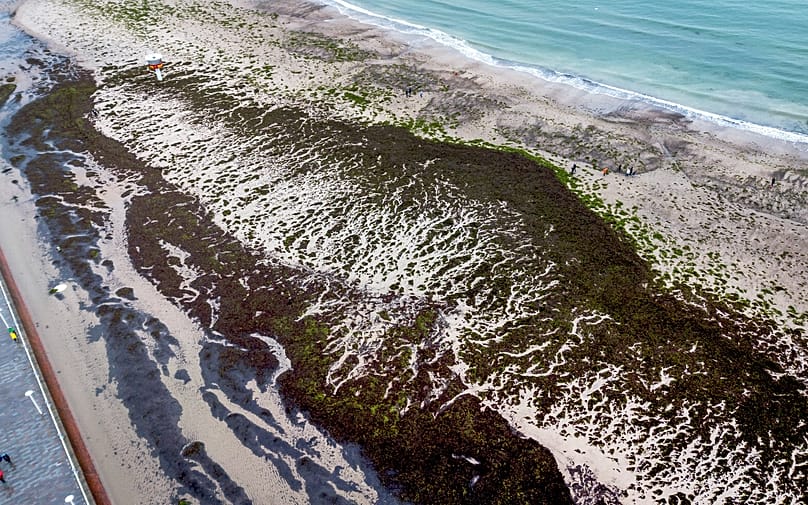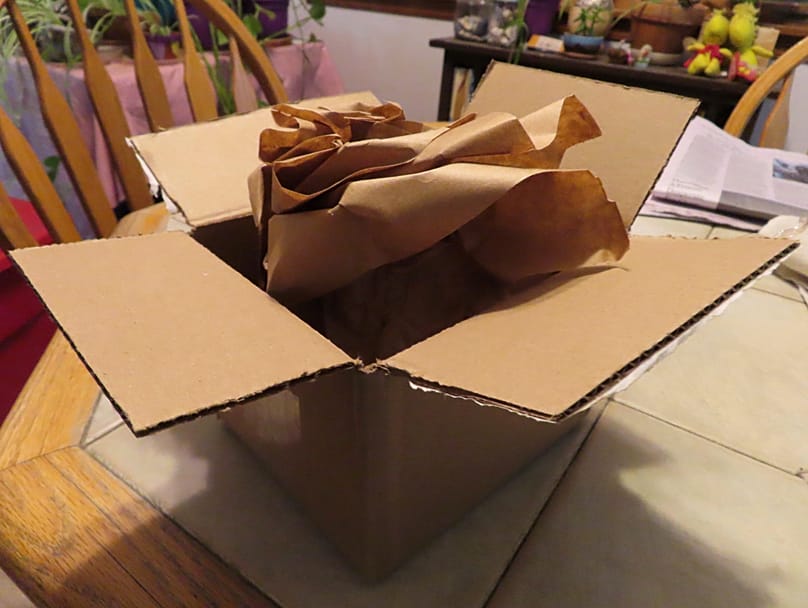Nature-based products such as biofuels and bioplastics will be looked to as drivers of green growth under a recently announced bioeconomy strategy, but critics are wary of overexploitation.
The European Commission wants to boost nature-based products in a bid to develop a fossil-free economy by 2040, according to its latest bioeconomy strategy, which prioritises plant-based food, natural medicines, energy from crops and trees, and even natural construction materials.
 ADVERTISEMENT
ADVERTISEMENT
 ADVERTISEMENT
ADVERTISEMENT
The strategy of bio-based solutions could lead to more sustainable societies and economies, as their byproducts could be biodegradable or compostable, slowly disintegrating until fully decomposed.
Yet critics argue that there's an underlying conflict within the Commission's plan, as exploiting nature to boost the bloc's competitiveness could put significant pressure on finite resources and prove unsustainable in the long term.
Announcing the plan this week, Environment Commissioner Jessika Roswall said "the bioeconomy is not science fiction," as the EU27 is looking at ways to optimise the use of natural resources to help the bloc slash greenhouse gas emissions while increasing its competitiveness.
The EU has had a bioeconomy strategy since 2012, and it was updated in 2018. Currently, the EU bioeconomy accounts for €2.7 trillion in revenue and employs 17.1 million people, up from the €812 billion in 2022.
With the new strategy, the Commission is exploring ways to streamline the authorisation of new products in Europe to boost the sector's market share further.
“One key novelty in this strategy to mainstream the bioeconomy is the fact that we are looking more in depth about how to boost materials uses and how to boost the use of secondary biomass like forest residues, byproducts, and food waste, to reduce the need for primary biomass," an EU official said at a press briefing.
A bioeconomic future
While no figures have yet been presented, the Commission’s proposal for the next eight-year budget is set to increase funding for the bioeconomy.
"We will create a European Bioeconomy Regulators and Innovators' Forum to promote the exchange of best practices and fast-track authorisations. We will give technical support to SMEs to help them make the leap from innovation to growth," said Roswall.
The Commission expects to speed up progress toward deployment by removing existing barriers in the bloc's single market and scaling up investment.
International competition from the United States and China has also been flagged as a deterrent to faster deployment of bio-based products, posing the risk that innovation will shift to non-EU markets.
The bioeconomy could also be a game-changer for the construction sector, which the EU executive reports is responsible for over 35% of the EU’s waste generation and 5-12% of total national greenhouse gas emissions.
Bio-based construction products include wood and other renewable materials such as hemp, straw, fungal mycelium and fibre-based composites. The Commission's strategy says that the use of these products could help reduce embodied carbon and the energy demand in buildings by about 40%.
Moreover, biorefineries that convert biomass such as agricultural residues and bio-waste could also produce alternatives to critical raw materials, such as bio-based battery anodes, the strategy predicts – though it notes that these plants often require "significant capital investment" and "coordinated planning for feedstock and infrastructure," despite the positive returns.
"Enhanced industrial symbiosis can optimise use of feedstocks across sectors, stabilise input supplies, reduce waste and production costs and support industrial clusters," reads the strategy.
Similarly, the business case for bio-plastics could partly solve plastic dependency across several industries, and plastic pollution, as the EU wants to invest in alternatives made from starch, lignin or algae.
"Long has mass bioplastic market adoption been capped by inconsistent material definitions from market to market. Until now, all bioplastics – bio-based, biodegradable, compostable – were often lumped under the same regulation and taxation," said Fredrik Malmfors, CEO of Swedish bio-based plastic scale-up Lignin Industries.
Currently, 11 EU countries have adopted a bioeconomy at the national level. The Commission lists Austria, Finland, France, Germany, Ireland, Italy, Latvia, Malta, the Netherlands, Portugal and Spain and at least eight other member states as having strategies under development. Outside the EU, Norway is also pursuing a similar model.
Deploying the leftovers
Biomass, organic material from plants and animals, is the basis for bio-based products. In 2022, biomass in Europe was used primarily for animal feed (38%), energy (29%), materials (24%), and food (9%), according to the Commission.
Over the last ten years, biomass use for energy increased by 14%, while material use grew by 11%.
The EU27 is due to revise the bloc's renewable energy law in 2027, when the Commission is slated to assess how national biomass support schemes affect biodiversity, climate, possible market distortions as well as the availability of sustainable feedstocks.
Jean-Marc Jossart, secretary general of the Brussels-based trade association Bioenergy Europe, welcomed the recognition of bioenergy as part of "an integrated and efficient system".
"Europe’s agriculture and forestry systems vary significantly and require flexible frameworks that allow member states and regions to maximise sustainability and efficiency," reads Bioenergy Europe's statement.
Competitiveness versus sustainability
Environmental groups expressed caution about the potential overexploitation of already fragile resources, such as forests, which act as carbon sinks by trapping carbon dioxide that would otherwise pollute the atmosphere.
Aline Maigret, head of policy at the environmental NGO Zero Waste Europe, welcomed the "ambitious goals" set out in the bioeconomy strategy, but drew a red line.
“Achieving a circular bioeconomy requires careful design within planetary boundaries. For example, promoting bio-based packaging without tackling environmental pressures from intensive forestry and agriculture is a no-go,” Maigret said.
Fern, an environmental NGO working on forest policies, raised similar concerns, saying the Commission's strategy should include clear guidelines to safeguard nature rather than exploit it.
"Wood supply is limited and threatened by poor forest management and the climate and biodiversity crises," reads Fern's statement, which also flagged issues with biomass exploitation abroad, noting that most of the Earth's biomass does not grow in Europe.
Eva Bille, head of the circular economy at the NGO European Environment Bureau, regretted the Commission's lack of recognition for its efforts to reduce pressure on ecosystems.
“The Commission clings to the illusion that we can simply replace our current consumption with bio-based inputs, overlooking the serious and immediate harm this will inflict on people and nature,” Bille said – adding the EU executive disregarded the fact that the EU's animal farming sector is more than 70% dependent on imported feed to sustain the current level of overproduction.












